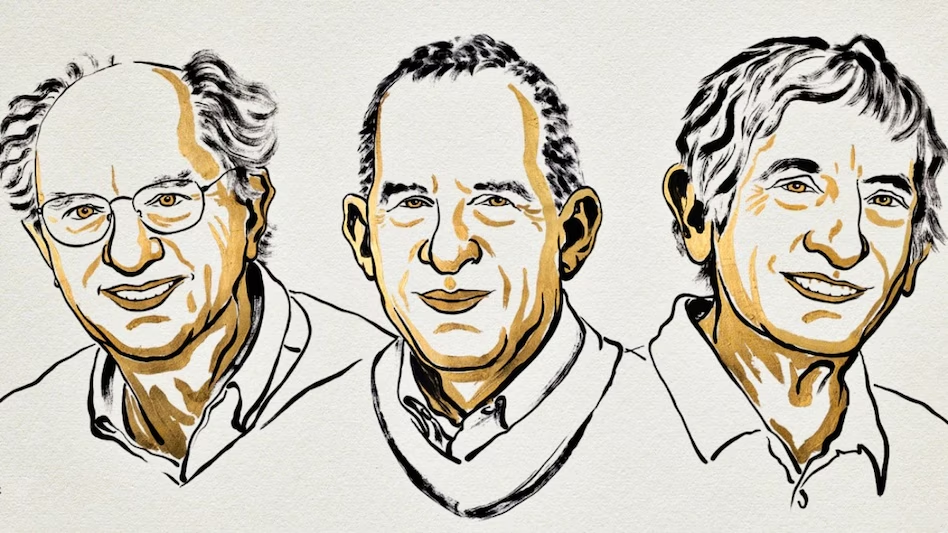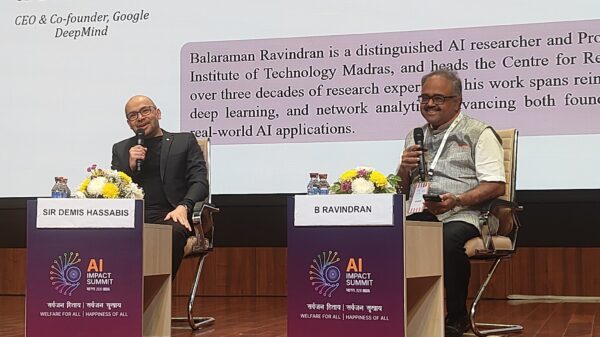The 2025 Nobel Prize in Physics has been awarded to John Clarke, Michel H. Devoret, and John M. Martinis for their pioneering work in quantum mechanics.
The Royal Swedish Academy of Sciences announced the winners at a Tuesday news conference in Stockholm, Sweden.
The three scientists will share the prize money of 11 million Swedish kronor, equivalent to approximately £872,000. Their research, conducted in the 1980s, focused on electrical circuits and revealed remarkable quantum phenomena. The Nobel committee highlighted their discovery of “macroscopic quantum mechanical tunnelling and energy quantisation in an electric circuit.”
Quantum mechanics governs the behaviour of tiny particles, like electrons, in the subatomic world. Clarke and his team demonstrated that electrons can “tunnel” through energy barriers, a process previously thought impossible. Furthermore, they showed that this effect could be reproduced in real-world electrical circuits. These findings form the foundation of modern chips, which scientists are now using to build powerful quantum computers.
Clarke, born in Cambridge, UK, and now a professor at the University of California, Berkeley, said the announcement was a shock. “It was a surprise of my life,” he said. He added that the work completed forty years ago laid the groundwork for technology that was unimaginable at the time.
Devoret, born in Paris, France, teaches at Yale University. Martinis is a professor at the University of California, Santa Barbara. The trio’s research is now central to superconducting qubits, one of the leading hardware technologies for quantum computing.
Read more: US government and IonQ partner to build quantum sandbox in space
Read more: OpenAI blocks accounts tied to China’s surveillance and phishing efforts
Work bridges fundamental science and practical application
In addition to quantum computing, their discoveries influence everyday technology. Mobile phones, cameras, and fibre optic cables all rely on principles of quantum mechanics. Consequently, the work of these scientists bridges both fundamental science and practical applications.
“This is wonderful news indeed, and very well deserved,” said Professor Lesley Cohen, Associate Provost in the Department of Physics at Imperial College London. She added that the work of Clarke, Devoret, and Martinis has had broad implications for both theoretical and applied physics.
Meanwhile, the scientific community has welcomed the recognition. Their experiments on energy quantisation and quantum tunnelling have reshaped how researchers understand electrical circuits. In addition, the findings continue to inspire advances in technologies worldwide.
The Nobel committee noted that their breakthrough research not only deepened understanding of quantum mechanics but also paved the way for a new generation of computing. As a result, Clarke, Devoret, and Martinis are now credited with helping to define the future of computing.
Several companies are actively advancing computing and could benefit from Clarke, Devoret, and Martinis’ work.
IBM (NYSE: IBM) leads the sector with its IBM Quantum division, building superconducting qubits and offering cloud-based quantum services. Additionally, Google’s Quantum AI team develops powerful quantum processors, including the Sycamore chip, which relies on similar principles.
Microsoft (NASDAQ: MSFT) also invests heavily through its Azure Quantum platform, integrating quantum hardware and software for enterprise clients. Meanwhile, startups like Rigetti Computing (NASDAQ: RGTI) and IonQ, Inc. (NYSE: IONQ) focus on specialized qubits and scalable systems. These companies, in addition to startups such as D-Wave Quantum Inc (NYSE: QBTS) and PsiQuantum, explore superconducting and photonic approaches to quantum computing.
.
joseph@mugglehead.com












